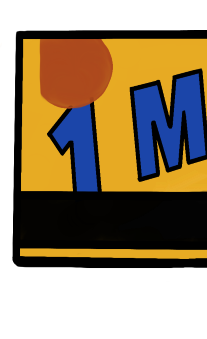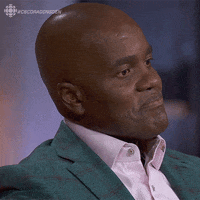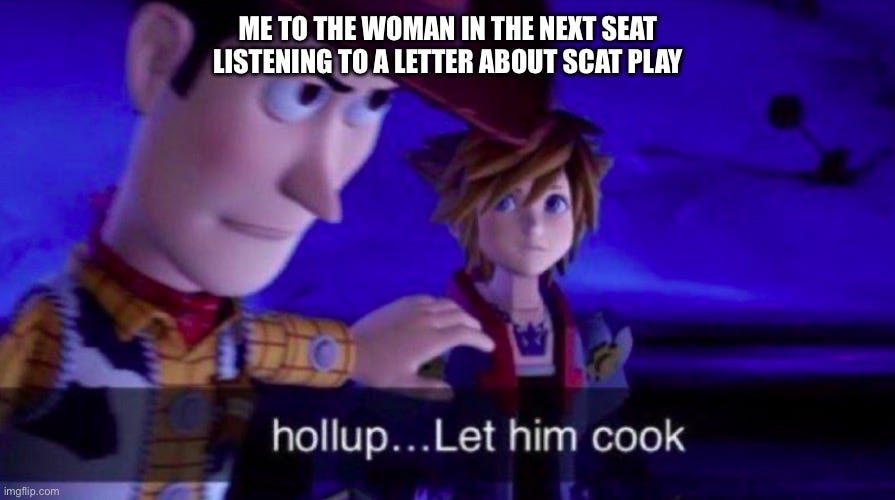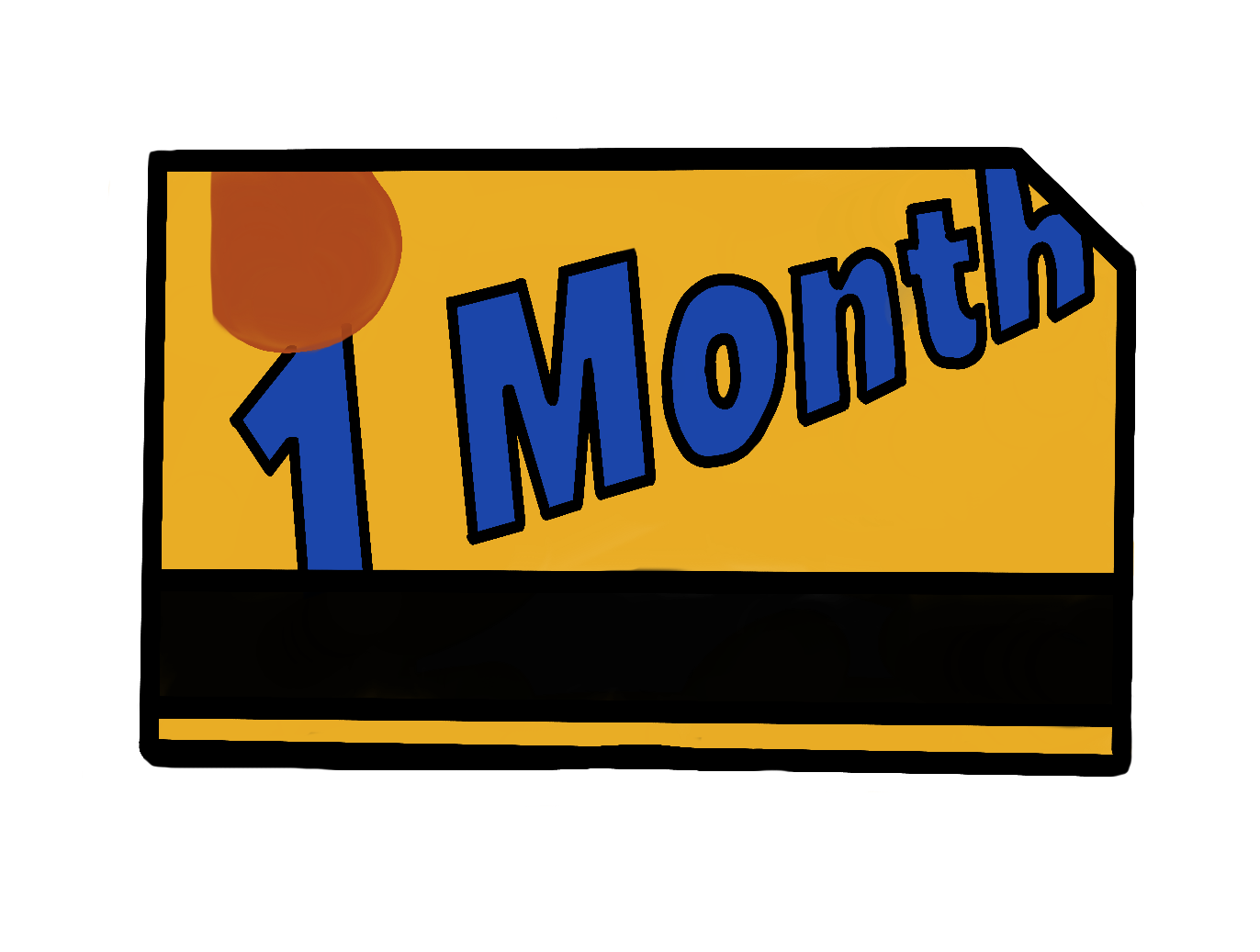Colorism & Kink & Whales, Oh My: Under The Radar Festival Review
Ekemini and Desi hopped on multiple Zoom calls (cause they're on that free Zoom life) and discussed the four shows they saw together during The Public's Under The Radar Festival.
The Under the Radar Festival celebrates new theatre works from all across the world which ran from January 4th (Desi’s birthday, shout out! She turned 25…someone get this girl a walker) to January 22nd this year. The festival featured over 36 artists in 19 days, all performing at various partnering venues. This transcript has been edited for length and clarity.
seven methods of killing kylie jenner
Synopsis: Kylie Jenner: self-made billionaire? Bffr. At least, Cleo seems to think so. And in seven methods of killing kylie jenner, she lets everyone in the twittersphere know it, much to her best friend Kara’s chagrin.
Desi: I'm gonna let you go first because I might say something a little controversial.
Ekemini: I thought both of the performances by Tia Bannon (Kara) and Leanne Henlon (Cleo) were really strong. I got the sense that the set was intended to evoke trees and lynchings to parallel this girl getting dragged up and down the (Twitter) timeline. But I don't know if I necessarily thought that the set tapped into the rest of the direction.
Desi: I agree. For some reason, I had a fuller experience reading the play than seeing it. I think that’s because of how Jasmine Lee-Jones wrote the script; you see the memes and tweets referenced on the page. She even has an actor's note where she says that the tweets and memes performed should really play up on the stereotypes. But I was missing so much of it because I wasn’t visually seeing it. When I read the play, I remember the overarching dread of Cleo’s identity being discovered. In the show, every time they did a Twitter moment, I was like “what are they saying?” It was sensory overload. Which maybe was the point?
Ekemini: Yeah, that really resonates with me. Something that I appreciate about the play is that it’s specifically British and about British racism. I think that in-and-of itself is valuable, especially with the discussion of Saartjie in the second half of the play. Anti-Blackness is global. It also struck me how overtly the play talked about race and racism. There were moments that made me feel uncomfortable. I'm not sure if that uncomfortability was me having an issue with the play or me being aware that these characters are speaking so candidly about race in a room full of white people.
Desi: Is there a moment that comes to mind?
Ekemini: Not especially, but maybe Cleo and Kara taking on homophobia and colorism in tandem. I think colorism and homophobia are two of the biggest issues within the Black community, so it makes sense that they discussed it. But I clocked that Kara didn't bring up Cleo's homophobia until after Cleo brought up her colorism. I think the play had takes on both of these things, but I don’t understand what the play’s take was on those things in conversation with each other. Why do you think Cleo continued to make the tweets?
Desi: I think it was a way for her to prove that the Twitter-scape couldn't knock her down. I also don't think she took what she was doing seriously from the start because people say outrageous stuff on the internet all the time. I've been thinking a lot about this play in context with current popular social media apps. Obviously TikTok. These kiddos on TikTok are vicious! I’ll look at a cute cat TikTok and someone comments “kill yourself” or is shouting slurs. People truly don't think there are any—I mean, to be honest, sometimes there's really not—repercussions for your actions online. She was rediscovering her anger as she went along and used Twitter as an outlet to express it like:
Ekemini: Yeah…it was interesting to see her move mad online and then puff out her chest with Kara, knowing that she's actually not even standing ten toes down in what she's saying because she's saying it under an alias.
Desi: Oh, I see what you're saying. It's like…if you want to say that with your full chest and put your name and address on it.
Ekemini: Well not your address but yeah, I'm not convinced that she would have tweeted all that if she had known it would have been attributed to her.
Desi: 110%
seven methods of killing kylie jenner was written by Jasmine Lee-Jones, directed by Milli Bhatia, and featured Tia Bannon and Leanne Henlon. It ran from January 10 to January 22, 2023 at The Public Theater, and will run February 4, 2023 to March 3, 2023 at Woolly Mammoth Theatre Company in Washington, D.C.
Ekemini’s rating of “seven methods of killing kylie jenner”

Desi’s rating of “seven methods of killing kylie jenner”

Your Sexts are Shit: Older Better Letters
Synopsis: In Your Sexts Are Shit: Older Better Letters, Rachel Mars contends that we as a society have backslid, as far as our ability to articulate the erotic goes.
Desi: Off the bat, this is a rent rating for me.
Desi: Listen, if you are a queer person who has ever been ashamed of who you are, or scared to explore your sexuality, or intimacy, or kink because of religious stuff, your parents, your family, your peers, whoever you were or currently around, I think this is a perfect production to make you feel comfortable to start that journey. Because it shows that people have been doing crazy, kinky ass shit for forever. The letters were also perfectly contrasted with Rachel’s own story about coming into their sexuality and their kink life. It was just so beautiful. But the floor is yours, Ekemini.
Ekemini: If I were to give it a score, I'd probably give it a Metro card. I think everything you just said to describe it is true. I clocked how one of the most explicit letters, the James Joyce letters, started the show, and I don’t know how to feel. On one hand, it breaks the tension; it tells people right away, “This is what you're in for.” But when the Joyce letter came, I strapped in for an hour of Joyce-type letters, and then most of the other letters after it were pretty PG-13 in comparison. And then I was like, “Oh, I guess I didn't need this seatbelt I put on in my brain.”
Desi: I think it's not so much about the graphicness of the letters, but about the weight of the love and sincerity and honesty in each letter. Like Frida Kahlo's letter or Brother Augustine’s letter held that weight in a much different way. It can either be: “I need you to shit on my chest” or “I will end my life if people know that I'm in love with you, but I need you to know I do.” I was also mentally prepared like, “God, are we just going to talk about scat play this entire time.” But I think it was such a good launching point before getting into the heavier stuff that's a little more upsetting. Like Eleanor Roosevelt’s letter about wishing for a world where her and her lover could be together. And I was like, “Eleanor, just you wait bitch, there is a world where you can.” There's also a lot of pain and suffering mixed into these love letters. There's more acceptance in the world today, but I'm putting big air quotes around that. This show just made me feel a lot of different things about queerness. Queer people experience harm every day, and every day, we're still trying to be told we can't be who we are. And it's like, fuck it. Give James the mic. Let the guy who's into scat play speak on the mic. Let him talk his shit.
Ekemini: So Joyce's wife…one, there were no letters from her, and two Rachel kept emphasizing and reiterating the fact that there were no letters from her. I felt a sense of loss. Particularly with the history of women, the history of queer people, and the history of people of color, there are holes of knowledge that we’ll never be able to fill. Then on the other hand, there was a part of me that was like, “you know what? Period.” Because these letters were not written with the intention that we were ever going to know about them. I think I'm actually okay with the fact that this woman's most private, intimate thoughts are not available for me to consume. Even though I think that's the opposite of how it was portrayed in the piece. The only other note I wrote is literally just “rough sound,” and it's truly just a technical quibble, which is that when they had the songs and-
Desi: Then it would fade out so quick.
Ekemini: It would fade out so quick.
Your Sexts Are Shit: Older Better Letters was written and performed by Rachel Mars. It ran from January 11 to January 15, 2023 at The Public Theater.
Ekemini’s rating of “Your Sexts are Shit: Older Better Letters”
Desi’s rating of “Your Sexts are Shit: Older Better Letters”
KLII
Synopsis: Accurately described as an “exorcism,” KLII conjures King Leopold II in 2023 to illuminate issues of racism, colonialism, misogyny, and more.
Ekemini: I'd give this one groceries. Actually, I would give the first half of the show groceries. And the second half…a month and a half MetroCard.
Desi: I agree. It's two totally different shows going on.
Ekemini: I think I was more emotionally impacted by specifically the second half than I was by “Your Sexts are Shit.” I think colonialism is always going to be very relatable to me. And then the first half was…
Desi: A lot more experimental. Sorta bringing us into the world Kaneza was trying to create.
Ekemini: But at times, I felt like the technical elements made it difficult for me to understand what was happening.
Desi: The Festival of “Desi needs accessibility needs met.” The entire time I was like -
Desi: I just couldn’t hear. I don't know if that was an artistic choice or not.
Ekemini: I already knew that King Leopold was responsible for the deaths of 10 million Congolese people. I already have at least some intermediate understanding of the harm that colonialism has done to the African continent. So it's interesting to be sitting in an audience where I felt like the people around me were hearing about a lot of stuff for the very first time.
Desi: I’ll be honest, I was hearing a lot of that for the very first time. And now that I'm thinking about how we just did the rating, I would also say there was a third act, which was the sharing of the tea and the installation in the lobby. Being with that coffin that held those chained hands…I stayed in that space for a while.
Ekemini: Yeah, it's interesting how the show opened and closed with ritual. Washing our hands in the buckets before we got seated.
Desi: And the history connecting her family and how her grandfather was this image of what a great man should be or what a great leader should be, in juxtaposition of King Leopold was very smart.
Ekemini: Kaneza’s family is Rwandan, so King Leopold did have a direct influence on her family. Colonialism in Rwanda created the conditions that allowed the Rwandan genocide to occur, which then caused her family to leave Rwanda. In her grandfather, greatness is stepping up to the occasion and choosing love and community. For King Leopold, “greatness” was exploiting people and extracting power.
Desi: Ok, I’ll go with groceries for that first half, half a MetroCard for that second half, and an honorable mention for the installation at the end.
Ekemini: To speak briefly about the installation. I think the installation was well done, but I'm always going to question how showing subjugated Black people actually functions. Connecting this to “seven methods” and Saartjie, white audiences viewing Black bodies through a strictly anthropological lens, (and the HowlRound essay that I wrote) how can I, as a Black person, or even how can’t I, as a Black person, watch theater and judge its artistic merit without having to contend with how I think it is being perceived by the white people who come to see it too. But maybe how it functions for white people and how it functions for people of color is different. Because even you, a Black woman, just said that a lot of the history described in this play was new information to you. Maybe the generous or the optimistic reading of this is that this play can be a point of diasporic learning or collective growth and shared understanding.
KLII was created by Kaneza Schaal and Christopher Myers, directed by Kaneza Schaal, and featured Ian Askew, Kiara Benn, Jonathan Kubakundimana, Sifiso Mabena, and Kaneza Schaal. It ran from January 9 to January 22, 2023 at Chelsea Factory, in association with The Public Theater.
Ekemini and Desi’s rating of “KL II”

Moby Dick
Synopsis: It’s literally Moby Dick. Moby Dick “[w]ith seven actors, 50 puppets, video projections, a drowned orchestra, and a whale-sized whale”.
Desi: It was literally just Moby Dick. But it was really stunning. The puppets, the craft, the artistry. It was all so gorgeous.
Ekemini: It was a technical feat of nature. But it was truly just Moby Dick.
Moby Dick was created by Plexus Polaire (based on the homonymous novel by Herman Melville), directed by Yngvild Aspeli, and featured Daniel Collados, Andreu Martinez Costa, Madeleine Barosen Herholdt, Ane Marthe Sørlien Holen, Cristina Iosif, Laëtitia Labre, Viktor Lukawski, Guro Skumsnes Moe, Havard Skaset, and Julian Spooner. It ran from January 12 to January 14, 2023 at NYU Skirball, in association with The Public Theater.
Ekemini and Desi’s rating of “Moby Dick”
















